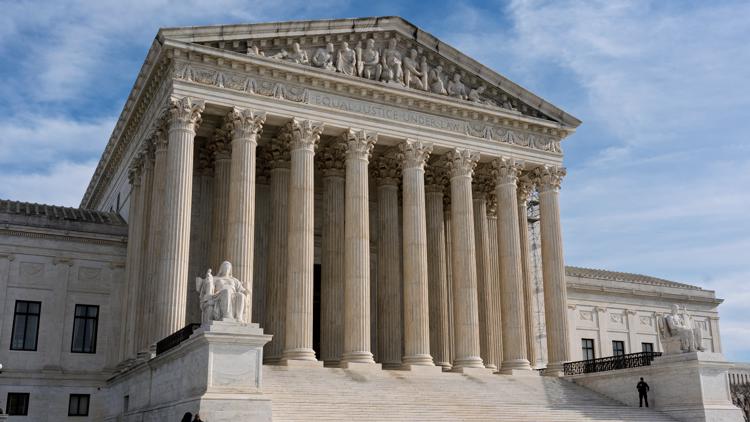Local Leaders React to SCOTUS Ruling on Birthright Citizenship for Refugees

All eyes were on the U.S. Supreme Court Friday as the justices handed down several major decisions .
The most significant involves the enforcement of President Donald Trump's executive order on birthright citizenship. The court's ruling didn't actually touch on whether it's constitutional.
At the heart of the matter is the U.S. Constitution's 14th Amendment. It says if you're born here, you're automatically a United States citizen.
When Trump took office in January, he issued an executive order to change that.
The president's executive order would end birthright citizenship for children who are born in the United States to mothers who are not in this country legally. When Trump issued the order in January, it was supposed to take effect within 30 days, but there were several legal challenges in several states.
Those challenges led to judges in those states issuing injunctions that blocked the order from going into effect.
Here's the rub: some of those judges also said those injunctions applied to the entire country.
RELATED: Hoosiers react to President Donald Trump's executive order ending birthright citizenship
Friday, the Supreme Court ruled in a vote of 6-3 that judges in a state cannot make decisions for the entire country.
So now what?
The Supreme Court put a 30-day pause on its ruling. After that, it's expected there will again be legal challenges to the president's executive order.
Now, because of today's ruling by the Supreme Court, it will be up to individual district courts to decide whether ending birthright citizenship is constitutional. That means district courts all over the country could come to different conclusions.
In Indiana, there are two districts — a northern and southern district. That means the court in Indiana's Southern District could say ending birthright citizenship is unconstitutional and not enforceable, while the Northern District court could say the exact opposite.
With Friday's ruling by SCOTUS, Trump's executive order can take effect in 30 days.
So where does that leave the babies who will be born in Indiana to undocumented mothers?
We asked Rachel Van Tyle the legal director of Exodus Refugee, a nonprofit group in Indianapolis that works with immigrants, many of them seeking asylum. That means they're trying to convince the U.S. to let them stay here and give them some kind of legal status. Their argument for that is that they'll be persecuted if they go back to their home country.
So these asylum seekers are the folks who have a less firm legal status here, along with people who are here undocumented. These are the people whose newborn babies could face deportation.
"It does not affect our clients who are citizens or permanent residents, but it will affect the rest of our clients who are pregnant, who may be giving birth in 45 or 60 days and its potential that those children may not be U.S. citizens, even though they're born in this country and the 14th Amendment says they are citizens," Van Tyle said.
Van Tyle said Friday's decision sets up uncertainty for those who are set to give birth a month from now.
"I'm sure I will get calls today from clients who are concerned about this," Van Tyle said.
The line that divides Indiana's northern and southern districts is just north of Indianapolis. So if the state's two district courts come to two different conclusions about birthright citizenship, Van Tyle said your right to be considered a U.S. citizen if you're born here could depend on where in Indiana you're born, if neither of your parents are citizens.
"You could be born in Lafayette and not be a citizen, but you could be born in Indianapolis and be a citizen, which is just a recipe or chaos and confusion," Van Tyle said.
RELATED: Supreme Court limits nationwide injunctions, but fate of birthright citizenship unclear
District courts can't start making decisions, though, until there are legal challenges.
Van Tyle expects that will happen once the executive order takes effect in 30 days and babies start being born to undocumented parents. Now, after Friday's Supreme Court decision, whatever those district courts decide about birthright citizenship, that ruling will be limited to where that ruling holds.
Van Tyle also said it's likely people and organizations will begin filing class action lawsuits with many parties to them from all across the country. In those cases, when plaintiffs from different states can join the same class action lawsuit, a district court can issue an injunction to block the executive order, stopping it from going into effect.
Van Tyle said in class action lawsuits, if a district court issues an injunction, it can still apply to the entire country.
Post a Comment for "Local Leaders React to SCOTUS Ruling on Birthright Citizenship for Refugees"
Post a Comment